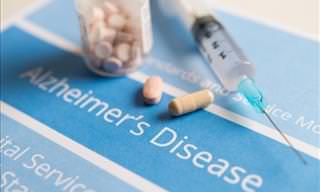Alzheimer’s disease is becoming more common, with over 10 million new dementia cases reported each year globally—that's about one every 3.2 seconds.
After diagnosis, many patients wonder, "What will happen next?" This is a challenging question for doctors to answer. To help, a team at Amsterdam University Medical Center has created a model that predicts cognitive decline.

While the predictions aren't completely certain, they offer a general idea of the disease's progression over five years. Currently, a prototype app is being used for research purposes, with plans to develop a more user-friendly version involving input from patients, families, and healthcare providers.
Cognitive decline happens at different rates for everyone, and many people want to know what to expect for themselves or their family members. This means there's a real need for improved prediction models, says Pieter J. van der Veere, M.D., from Amsterdam University Medical Center, Netherlands.
Related: Dementia Can Be Well-Managed With These 10 Tips
This research is published in the journal Neurology. It also explored the potential of new drugs to lessen the decline in patients with the disease.
How researchers developed the model

The researchers developed models to estimate how quickly people's scores on thinking and memory tests would decrease over time. They then compared these predictions with actual test results from participants. The study involved 961 individuals with an average age of 65; 310 had mild cognitive impairment, while 651 had mild dementia. All participants had amyloid-beta plaques in their brains, which are early indicators of Alzheimer's disease and are the focus of new medications.
The cognitive test scores range from zero to 30. A score of 25 or higher suggests no dementia, 21 to 24 indicates mild dementia, 10 to 20 represents moderate dementia, and scores below 10 suggest severe dementia.
After five years, people with mild cognitive impairment showed a drop in their test scores from 26.4 at the beginning of the study to 21.0 at the end. Those with mild dementia had their scores decrease from 22.4 to 7.8 over the same period.
While the models were useful for predicting cognitive decline, they also highlighted some uncertainty, according to van der Veere. In half of the cases involving mild cognitive impairment, the actual scores were within two points of the predicted scores. For those with mild dementia, the scores were within three points of the prediction for half of the participants.
The researchers found that a person with mild cognitive impairment, who had a test score of 28 and a specific level of amyloid plaques, would be expected to progress to moderate dementia (score of 20) in six years. If a treatment reduces the decline by 30%, this person would take 8.6 years to reach moderate dementia. Meanwhile, for someone with mild dementia starting at a score of 21, reaching a score of 15 was predicted to take 2.3 years, extending to 3.3 years if the decline was reduced by 30%.
Cognitive decline happens at different rates for everyone, and many people want to know what to expect for themselves or their family members. This means there's a real need for improved prediction models, according to Van der Veere.
One limitation of the study was that the cognitive tests were not always conducted at the same time of day. People with cognitive decline may score lower later in the day when they feel more fatigued.
Related: Reduce the Risk of Alzheimer’s with These Lifestyle Tips
Providing patients with an app that helps them customize treatments and forecasts

The researchers have not only created the predictive model but also designed a prototype app for clinicians, according to the study's authors.
The tool, which is currently being developed, includes a communication sheet explaining the predictions for clinicians to share with patients and caregivers. Additionally, the app provides information for patients about the disease, diagnosis, and prognosis.
 Go to BabaMail
Go to BabaMail



























